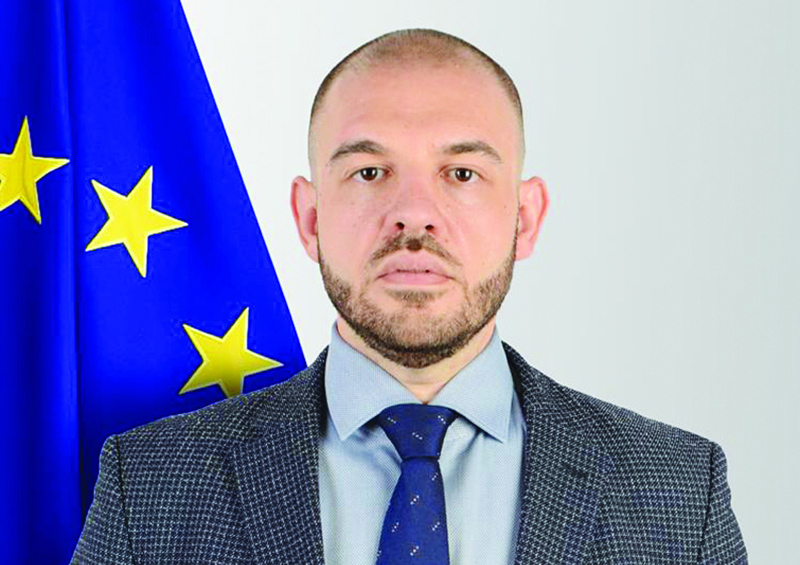
KUWAIT: The European Union Ambassador to Kuwait Dr Cristian Tudor praised preventive measures taken by the Kuwaiti government in face of the COVID-19 pandemic. In an inclusive interview Tuesday, Tudor said that Kuwait had responded very quickly, resolutely and effectively and began imposing restrictions to help contain the virus spread at an early stage. Tudor affirmed that despite these difficulties, Kuwait is helping other countries to reduce the spread of the disease, valuing Kuwait’s decision to provide $60 million to finance the World Health Organization to help countries most affected such as Iraq, Palestine and Syria. He also hailed Kuwait’s participation in the global response conference to confront the COVID-19 last May, which was organized by the EU with several partner governments and organizations in order to raise funds to accelerate the development of vaccination, treatment and diagnosis for the disease.
Foreign policy
Regarding Kuwait’s foreign policy, he said that Kuwait represents wisdom and peace in the region, and this what made the EU and Kuwait natural partners in these difficult times. He also stressed that Kuwait has consistently formulated mediation policies that seek bringing peace and stability to the Gulf region, indicating that the EU welcomes the Kuwaiti leadership’s continued efforts to help solve the Gulf dispute. The EU considers the State of Kuwait as an increasingly important partner, and hopes to have more comprehensive and multi-dimensional cooperation covering political and economic dialogue, as well as sectorial and regional cooperation, he added. The Ambassador noted that Kuwait was the first in the Gulf region to sign a cooperation agreement with the European External Action Service in July 2016, which provided a platform for regular political consultations covering joint regional challenges in the Middle East in addition to bilateral relations.
The agreement includes sectorial consultations in the areas of clean and renewable energy, security, counter-terrorism, development cooperation, and other areas of common interests, he added. He emphasized the Union’s interest in strengthening close cooperation with Kuwait in the field of crisis preparedness, pointing out that the recent health crisis clearly highlighted the importance of unified global efforts in this field. The EU is Kuwait’s third-largest trading partner, which has been a major investor in Europe for a long time, noted Tudor.
Future goals
Regarding the mission’s future goals in Kuwait, he pointed out that one of the objectives is to establish an EU brand in the country to overcome a widespread misconception that the Union is only linked to the Schengen visa. “Therefore, we are trying to raise awareness of the Union through the use of various tools. We are trying to be closer to the Kuwaiti public, especially the youth, by using social media platforms that are very popular here, and we recently participated in a live streaming on social media focusing on the youth,” said the Ambassador.
On the actual steps of the EU to support the ‘New Kuwait 2035 Vision’, he stressed that the Union has extensive experience in the fields related to helping diversify the economy. He pointed out that linking Kuwait to the fields of work in the EU through the use of various tools will facilitate the concrete realization of dialogue, especially at the level of electronic commerce between enterprises, which generates business and commercial opportunities for both the EU and the Gulf Cooperation Council countries. Among tangible examples of such steps in this regard are the organized participation by the Kuwait National Fund for Small and Medium Enterprises Development in the European network of projects that will be facilitated through the EU project and the EU-funded GCC countries on economic diversification. —KUNA
.jpg)
